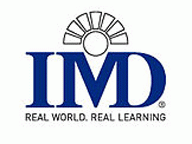Faculty News
—
Nobel Laureate Prof. Robert Engle on calculating systemic risk
—

Excerpt from AGEFI Weekly -- "Instead of having to weight each asset, we should look at all the business in the portfolio of a bank and calculate its risk. The advantage is to take into account the correlation between assets and their volatility (French to English translation)."
Faculty News
—

Excerpt from AGEFI Weekly -- "Instead of having to weight each asset, we should look at all the business in the portfolio of a bank and calculate its risk. The advantage is to take into account the correlation between assets and their volatility (French to English translation)."





















